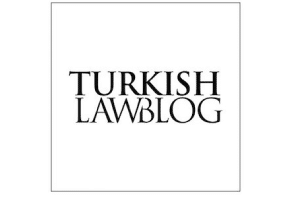According to Cambridge Dictionary, executive is someone in a high position, especially in business, who makes decisions and puts them into action. Firstly, high position means a high-powered job and with great power comes great responsibility. Secondly, decision making is the process of identifying and choosing alternative courses of action, a process quite risky and tough. Last but not least, putting the right decision into practice is even harder. Combining the inferences regarding the nature of such a position, being an executive seems to require a considerable number of qualities within a sluggish and volatile global economy. Despite having the goods, the executives of companies, who often perform as a member of Board of Directors (BoD) are always human i.e. They have the right to make inaccurate decisions justifiable under business judgment rule.
The business judgment rule grew principally from the judicial concern that persons of reason, intellect, and integrity would not serve as BoD member if the law exacted from them a degree of prescience not possessed by people of ordinary knowledge. Within this respect, the rule provides a presumption that in making a business decision, BoD members of a company acted on an informed basis, in good faith and in the honest belief that the action taken was in the best interests of the company[1]. Historically, it had been first created by the United States (US) Courts -although debated-[2] with the Percy v. Millaudon decision dated 1829 and was substantially improved between 1970 and 2000 through the decisions rendered by the courts of State of Delaware. Today, the rule is not only enacted in 35 US States but also in various European Union countries and it is implicitly accepted through court decisions in some other countries such as United Kingdom.
Under Turkish law, BoD, to the extent delegated to it, is authorized to make decisions with regard to all kinds of business and transactions required to perform the company’s scope of activity, excluding those which are subject to the authority of the general assembly according to law and articles of association. Turkish Commercial Code (TCC) Art. 369 stipulates that while making decisions and putting them into actions, BoD members should perform their duties with care of a precautious manager and to protect the company’s interests in good faith, avoiding to make any direct reference to the business judgment rule.
Nevertheless, the rule is mentioned in the article’s preamble, where a direct correlation has been established between precautious manager and the business judgment rule. Despite the statement in the preamble, Turkish courts -up to the present- refrained from referring to the business judgment rule within their precedent decisions, making a literal interpretation based on the wording of the article. The liability of a BoD member is thus solely measured with compliance to the law and/or to the articles of association set forth under TCC Art. 553.
As a matter of fact, the ongoing Covid-19 outbreak together with the fluctuant Turkish economy might encourage the BoD members to take bold decisions as to meet the targets of their companies operating in a competitive global economy. That being said, one might wonder if any BoD member would be willing to take such decisions if there is redundant judicial concern on their part. At this point the business judgment rule could be a shot in the arm, providing essential confidence for BoD members acting on an informed basis, in good faith and in the honest belief that the action taken was in the best interests of the company. Therefore, the business judgment rule could indeed be incorporated into TCC, with the necessary amendments as we see such an application in other countries. This might also allow Turkey to further integrate its economy to international markets, representing a more appealing market for foreign investors.
To conclude, the adaptation of the business judgment rule could mean more than a mere amendment. Besides the judicial protection for BoD members, enabling a shrewd and bold decision-making for companies, it could also be a letter of intent by the Turkish law maker to the international markets. This would not only make the Turkish market more appealing for foreign investment but it could also be a positive differentiation for Turkey during the Covid-19 Pandemic.
[1] Aranson v. Lewis, 473 A 2d 805 (Del 1984).
[2] Some sources state it is the Homes v. Oakland (104 US 450) decision dated 1881.




